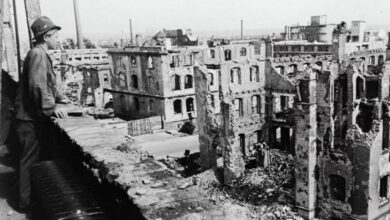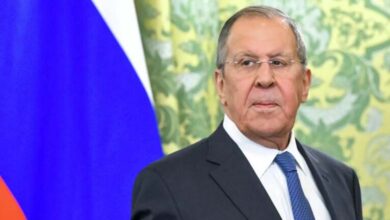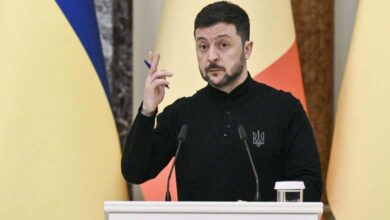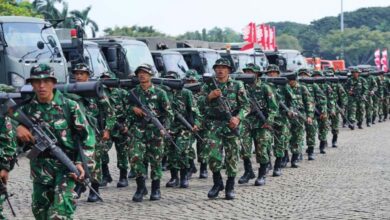U.S. Veto Blocks Ceasefire Efforts in Gaza
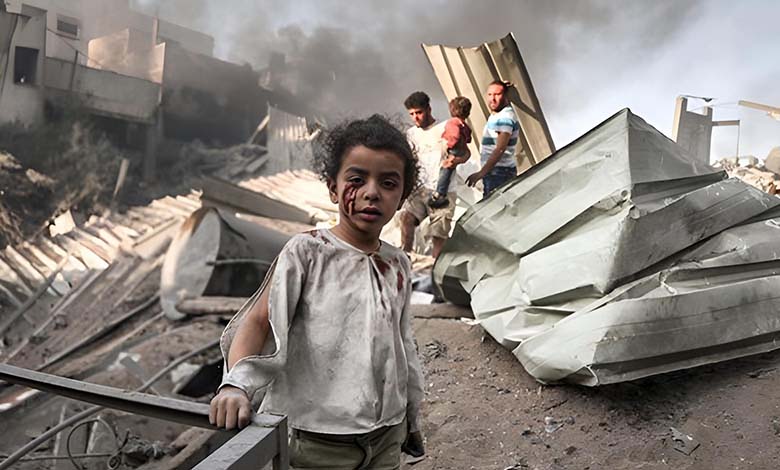
Washington’s stance angers Security Council members, as the U.S. envoy insists on Israel’s right to self-defense.
The United States sparked outrage among other members of the UN Security Council on Wednesday by using its veto power to block a draft resolution calling for a ceasefire in Gaza and unrestricted humanitarian aid access to the besieged territory. The U.S. justified the move by claiming the resolution undermined diplomatic efforts to resolve the conflict.
-
Palestinian Political Analyst: The Occupation Is Deliberately Starving Gaza’s Children to Break the People’s Resilience
-
Gaza… The Hungriest Place on Earth
Pakistan’s ambassador, Asim Iftikhar Ahmad, harshly condemned the U.S. veto, calling it a “green light for genocide” against Palestinians in Gaza and a “moral stain on the conscience” of the Security Council.
His Algerian counterpart, Ammar Benjama, declared: “Silence does not save the dead, does not comfort the dying, nor does it address the consequences of injustice.”
Slovenian ambassador Samuel Žbogar stated: “As humanity is being tested live in Gaza, this resolution was born from our shared sense of responsibility — to Gaza’s civilians, to the Israeli hostages, and to history itself. Enough is enough.”
-
Hunger Precedes Aid: Food Warehouse Stormed in Gaza Amid Humanitarian Collapse
-
After the Chaos of the First Distribution… Will the New Aid Mechanism in Gaza Hold?
French and British ambassadors expressed regret over the vote’s outcome, while Chinese envoy Fu Cong directly blamed the United States, urging it to “abandon political calculations and adopt a just and responsible position.”
This marks the first U.S. veto at the Security Council since Donald Trump returned to the White House on January 20.
Before the vote, U.S. envoy Dorothy Shea argued that the resolution would “undermine diplomatic efforts to reach a ceasefire that reflects the reality on the ground and encourages Hamas.” She said the resolution “falsely equates Israel and Hamas.”
-
Did the Gaza Truce Falter Over a Handshake? Details of the Rejected Proposal
-
Gaza Aid: Sudden Resignation of Director of the New Mechanism
She added the text was “unacceptable for what it includes, and for what it omits,” emphasizing Israel’s right to self-defense.
This was the first Security Council vote on the Gaza war since November, when the U.S. under then-President Joe Biden blocked a similar resolution calling for a ceasefire in the now nearly 20-month-old war.
The Council’s last resolution on Gaza dated back to June 2024, when it supported a U.S. multi-phase ceasefire plan involving the release of Israeli hostages. The truce only materialized in January 2025.
-
War in Gaza: Intensified Israeli Strikes and Rocket Response
-
U.S.-Backed Gaza Aid Plan Rejected by the United Nations
-
Gaza Crisis: Agreement on an Independent Committee and Security Training in Cairo
The latest resolution, submitted by the ten non-permanent members, received 14 votes in favor and 1 against.
The draft called for an “immediate, unconditional, and permanent ceasefire” and the unconditional release of hostages. It also highlighted the “catastrophic humanitarian situation” in Gaza and called for the “immediate and unconditional lifting of all restrictions” on humanitarian aid delivery and safe, unimpeded distribution — including by the United Nations.
After over two months of total blockade, Israel allowed limited UN aid trucks to enter Gaza starting May 19, but the UN said the aid was merely a “drop in the ocean” compared to Gaza’s dire needs.
-
“Enough”: A Palestinian Cry from Gaza
-
Israeli escalation on Gaza 33 Palestinians killed including children in overnight airstrikes
In parallel, the U.S.-backed Gaza Humanitarian Foundation began distributing aid on May 26, but temporarily shut its centers on Wednesday after dozens were killed near its sites, reportedly by Israeli fire, according to Gaza’s Civil Defense.
The UN refused to cooperate with the foundation, whose funding sources are unclear, stating that it violates basic humanitarian principles. It described the centers as “death traps”, where starving Palestinians are forced to walk through barbed wire under the watch of armed private guards.
Palestinian UN envoy Riyad Mansour declared on Tuesday: “You cannot witness this outrage at the Security Council and do nothing. You must act.” He cited a speech by UN humanitarian coordinator Tom Fletcher, who urged efforts to “prevent genocide in Gaza.”
-
Political Analyst: Gaza Faces a Slow Death Amid Disgraceful International Silence
-
Mass Displacement and Annexation Threats: The West Bank Faces a Gaza-Like Scenario
Mansour warned that if a veto were cast, “the blame will lie with those preventing the Council from fulfilling its duty,” adding: “History will judge us all by what we did to stop this crime against the Palestinian people.”
Conversely, Israeli ambassador Danny Danon called the resolution a “gift to Hamas” and thanked the U.S. for “standing by the truth” by blocking it.
In a statement on Telegram, Hamas condemned the U.S. decision, saying the veto reflected “the U.S. administration’s blind support for the occupation government and its crimes against humanity in Gaza.”
Israel is under growing international pressure to end the war, which erupted after an unprecedented Hamas attack on southern Israel on October 7, 2023.
-
We Don’t Want to Hear the Word Evacuation: Gaza Voices Stand Against Displacement Plans
-
Survey Reveals Scale of Discontent and Anger Towards Hamas in Gaza
-
48 Hours… Hamas Sets Deadline to Respond to Gaza Truce Proposal
-
Relentless Bombardment and Daily Evacuation Warnings: Gaza Bleeds in Blood and Geography
-
More than Half of Gaza under Netanyahu’s Control… Morag Encircles Rafah to ‘Strangle’ Hamas





